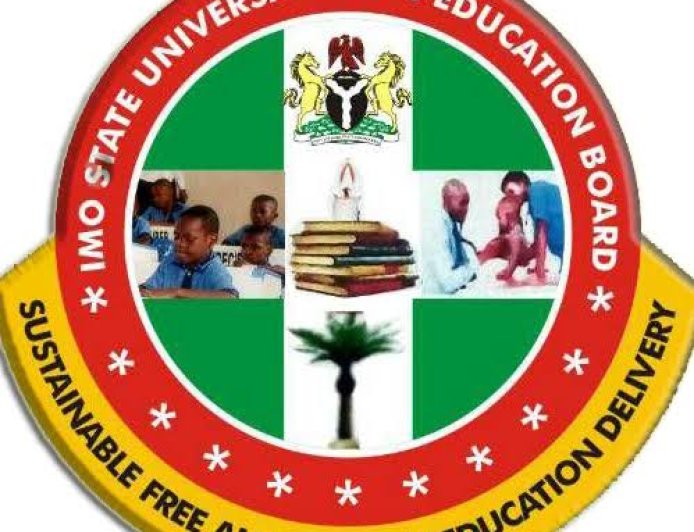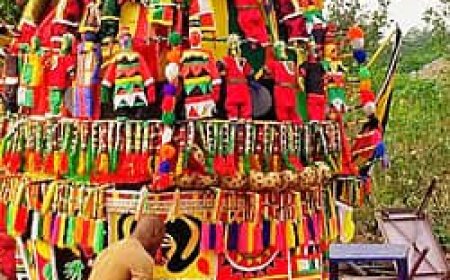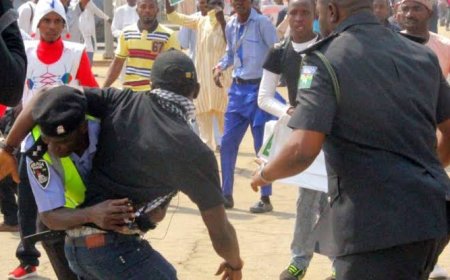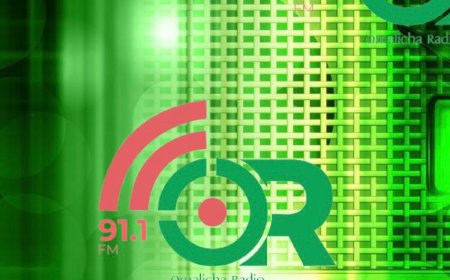The Decline of Basic Education in Imo State
By Benny Naza and Rita Chikwe
Introduction – The Importance of Basic Education
Education is the foundation of any progressive society. It empowers individuals, fosters economic growth, and ensures a brighter future for generations to come. Basic education, in particular, is crucial as it shapes young minds, equips them with essential literacy and numeracy skills, and provides the foundation for higher learning and societal development.
However, when access to quality basic education is compromised, the consequences are dire. A failing education system leads to high illiteracy rates, increased poverty, unemployment, and a rise in crime. Without proper education, children grow into adults who struggle to contribute meaningfully to society.
Historically, Imo State has been recognized as one of the most literate states in Nigeria. For decades, it stood as a beacon of educational excellence, producing some of the brightest minds in the country. However, recent statistics paint a different picture—one of decline, neglect, and a failing system that threatens the future of its young population.
The Challenges Facing Basic Education in Imo State
Decaying Infrastructure in Public Schools
One of the most pressing issues facing public schools in Imo State is the poor state of infrastructure. Many schools still operate in buildings that date back to the colonial era or the years immediately after Nigeria’s independence. These structures have not been renovated in decades, leaving them in a state of disrepair.
Leaking roofs, broken windows, cracked walls, and in some cases, entire blocks collapsing, have become common sights in public schools. Renovations, when they do happen, are often done poorly, without consideration for quality or safety. Students are forced to learn in unhygienic and unsafe environments, which affects their concentration and overall learning experience.
Lack of Security in Schools
Security is another major concern. Many public schools are not fenced, and those with fences have broken walls that have never been repaired. This has made schools vulnerable to criminal activities. Hoodlums and drug addicts have turned some of these institutions into their hideouts, leaving behind drug paraphernalia that students often encounter in their classrooms.
Even more alarming is the invasion of school premises by herdsmen and their cattle, sometimes during school hours. These incidents disrupt learning, instill fear in students and teachers, and highlight the failure of authorities to provide a safe learning environment.
Severe Shortage of Teaching Staff
Imo State’s public schools are facing a severe shortage of teachers. In many schools, one teacher is forced to handle multiple subjects across different classes, a workload that is both exhausting and ineffective. In some primary schools, there are only three teachers managing six classes.
This shortage is largely due to the lack of teacher recruitment in the past five years, despite the retirement of many teachers during this period. In 2023, the state government announced plans to hire new teachers, but two years later, no progress has been made.
Poor Quality of Teaching and Lack of Training
The quality of teachers in public schools is also a growing concern. Due to the absence of regular training and retraining programs, many teachers are still using outdated teaching methods. With the world advancing in digital education and modern teaching techniques, Imo State’s public schools remain stuck in the past, depriving students of a competitive edge.
Lack of Educational Facilities and Teaching Aids
Beyond the lack of teachers, there is also a severe shortage of educational resources. Many schools do not have science or computer laboratories, fine arts studios or sports facilities. While global education systems are integrating modern technology into learning, many public schools in Imo lack even the most basic teaching aids.
The situation is so dire that some schools struggle to provide basic classroom materials like blackboards, whiteboards, chairs, and lockers. In some cases, two or more pupils are forced to share a single desk, while others sit on windowsills just to participate in class. Libraries, which should serve as learning hubs, are either nonexistent or have no book
The Shift to Private Schools and the Future of Education in Imo State
Due to the deteriorating state of public schools, many parents have lost faith in the system and have opted for private schools, despite their high costs. Unfortunately, some of these private institutions are substandard, operating solely for profit without maintaining quality educational standards.
The state government has repeatedly promised to make education a priority, with fresh commitments made for 2025. However, residents remain skeptical, as past promises have yielded little to no results.
The question remains: Will Imo State reclaim its position as the most literate state in Nigeria, or will it continue on this downward spiral? The fate of thousands of children depends on the actions taken today.
Conclusion
Education is not just about building classrooms; it is about securing the future of a generation. The challenges facing basic education in Imo State are solvable, but they require urgent and genuine commitment from the government, stakeholders, and the entire community.
The people of Imo State have a choice: to demand change and accountability or to watch as their once-proud education system crumbles beyond repair. The time to act is now.



